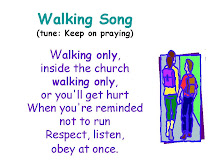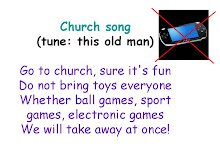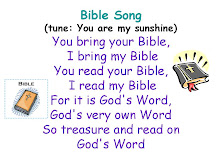On Dec 7, a children's film will be released in most theaters. However, this film actually carries anti- religion theme and therefore I DO NOT RECOMMEND parents to let your child watch it.
From an email:
在今個聖誕檔期 (12 月 20 日左右 ) 將有一齣兒童電影《魔幻羅盤》上映 ( http://hk.movies.yahoo.com/071029/214/2iik8.html ) 。這電影的原著為一部鼓吹無神論思想的書 “ His Dark Materials ” ,像哈里波特一樣是以一系列出版的,共三本。今次的《魔幻羅盤》是第一部,所以,不難估計其餘的也將陸續上演。我暫時還未找到中文譯,有興趣者可參以下網頁的簡介﹕ ( http://www.randomhouse.com/features/pullman/books/books.html )。
這書作者 Phillip Pullman 是一位激進的無神論主義者及人文主義者,他非常反對魯益斯 C.S.Lewis 及其著作「納尼亞傳奇﹕獅子女巫魔衣櫥」。他寫這三部曲的原因特別是為了沖淡魯益斯在納尼亞傳奇系列中所描繪、所象徵的基督。
Phillip Pullman 著書目的是要攻擊基督教而宣揚無神論。他曾經在 2003年的一次訪問中說,他所寫的書是希望將小孩子心裡的神殺死!灌輸沒有神的觀念!
儘管《魔幻羅盤》看似溫和而無傷大雅,但她確實與眾不同。在這三部曲中,小孤女陷入與老邁的神的壓迫中掙扎,最終獲得勝利。另一個角色是一位離開修院的修女,她描述基督教是「一個非常有力量和說服力的錯誤信仰」。而在最後一部書,其中有角色代表亞當與夏娃,他們最終把上帝殺死,而這位神的名字是耶和華。每一部書都在反映著 Phillip Pullman 對神、對基督的敵意。
相信沒多久,這電影將會有許多的宣傳,又或者會推出不同的宣傳產品。而且其中一位女主角為妮高潔曼,所以也會有一定的票房影響力。
請大家盡量抽點時間了解一下,慎重考慮,會否帶你們所認識兒童或與朋友觀看這部電影。我個人是不鼓勵觀看及購買該宣傳產品。原因是看了第一部,自然地會再看第二部、第三部;在羅馬書 1:20明明告訴我們「自從造天地以來,神的永能和神性是明明可知的,雖是眼不能見,但藉著所造之物就可以曉得,叫人無可推諉。」這樣公然反對神,其用意真是昭然若揭!
有天與一些朋友談及這電影,忽發奇想,若這電影是針對伊斯蘭教的話,相信也不可能面世!親愛的弟兄姊妹,願我們懂得如何辨別,懂得回應!
Here's a review from snope.com.
The Golden Compass, a fantasy film starring Nicole Kidman that is scheduled to be released into theaters on 7 December 2007, has been drawing fire from concerned Christians. The film is based on Northern Lights (released in the U.S. as The Golden Compass), the first offering in Philip Pullman's His Dark Materials trilogy of children's books, a series that follows the adventures of a streetwise girl who travels
through multiple worlds populated by witches, armor-plated bears, and sinister ecclesiastical assassins to defeat the oppressive forces of a senile God.
Books of the trilogy have sold more than 15 million copies around the world, with Northern Lights winning the Carnegie Medal for Children's Literature in 1995 and in 2007 being awarded the 'Carnegie of Carnegies' for the best children's book of the past 70 years. The Amber Spyglass, the final book of the series, won The Whitbread Prize in 2001, making it the first children's book to do so.
The series' author, Philip Pullman (wo has described himself as both an agnostic and an atheist), has averred that "I don't profess any religion; I don't think it's possible that there is a God; I have the greatest difficulty in understanding what is meant by the words 'spiritual' or 'spirituality.'" Critics of Pullman's books point to the strong anti-religion and anti-God themes they incorporate, and although literary works are subject to a variety of interpretations, Pullman left little doubt about his books' intended meanings when he said in a 2003 interview that "My books are about killing God" and in a 2001 interview that he was "trying to undermine the basis of Christian belief." (In 2002 conservative British columnist Peter Hitchens labeled Pullman "The Most Dangerous Author in Britain" and described him as the writer "the atheists would have been praying for, if atheists prayed.")
Bill Donohue, president of The Catholic League, has condemned The Golden Compass as a "pernicious" effort to indoctrinate children into anti-Christian beliefs and has produced a 23-page pamphlet titled The Golden Compass: Unmasked in which he maintains that Pullman "sells atheism for kids." Donohoe told interviewer John Gibson on 9 October 2007 why he believes Christians should stay away from the film:
Look, the movie is based on the least offensive of the three books. And they have dumbed down the worst elements in the movie because they don't want to make Christians angry and they want to make money. Our concern is this, unsuspecting Christian parents may want to take their kid to the movie, it opens up December 7th and say, this wasn't troubling, then we'll buy the books. So the movie is the bait for the books which are profoundly anti-Catholic and at the same time selling atheism.
Other reviewers, however, have described Pullman's works as being more generally anti-religion rather than specifically anti-Christian or anti-Catholic:
In "His Dark Materials," Pullman's criticisms of organized religion come across as anti-authoritarian and anti-ascetic rather than anti-doctrinal. (Jesus isn't mentioned in any of the books, although Pullman has hinted that He might figure in a forthcoming sequel, "The Book of Dust.") His fundamental objection is to ideological tyranny and the rejection of this world in favor of an idealized afterlife, regardless of creed. As one of the novel's pagan characters puts it, "Every church is the same: control, destroy, obliterate every good feeling."
skip to main |
skip to sidebar







January Activities
Mission Fest Jan 29
- Parents please sign up for your child and for your family for the bus seat to Mission Fest by Jan 15
Jan 30
- Children's Choir outreach at Eagle Ridge Hospital 2:00 - 2:30 p.m.
- Parents please sign up for your child and for your family for the bus seat to Mission Fest by Jan 15
Jan 30
- Children's Choir outreach at Eagle Ridge Hospital 2:00 - 2:30 p.m.
2011 Loving Jesus Dearly
1) Quiet Time with You ( devotional Campaign)
2) I am a Child of Prayer (Prayer time)
3) Faith at Home ( Family Altar course)
2) I am a Child of Prayer (Prayer time)
3) Faith at Home ( Family Altar course)
Children's Worship (Elementary) Theme
Bible Doctrine/Celebration Feast/ Life Topic/
Jan 9 - Change our Route
Jan 16 - The story of Ruth
Jan 23 - Our Road map
Jan 30: Grieve: The world's best cat
Feb 6 - The Driver
Feb 13 - The story of Samuel
Feb 20 - A wrong turn
Feb 27: Self-esteem
Mar 6: Devotion: Halfway Herbert
Mar 13 - The bridge
Mar 20 - The right Road
Mar 27: Purity: Ellie's Doll
Jan 9 - Change our Route
Jan 16 - The story of Ruth
Jan 23 - Our Road map
Jan 30: Grieve: The world's best cat
Feb 6 - The Driver
Feb 13 - The story of Samuel
Feb 20 - A wrong turn
Feb 27: Self-esteem
Mar 6: Devotion: Halfway Herbert
Mar 13 - The bridge
Mar 20 - The right Road
Mar 27: Purity: Ellie's Doll
2011 Children's Ministry Leadership Team
Community Care (Serve): Karen Law
Sunday school (Train): Teresa To
Awana (Relate): Rebecca Tong ( AWANA commander)
- Nursery: Rita Lau
- Parent coordinator: Lisa Leung
Outreach (Evangelism) Janis Chan
Discipleship (Abide): Alva Chu
Worship (Magnify); Vivian Leung
Family: May Mok
Deacon: Garrett Wong
Pastor: Fiona Wu
Sunday school (Train): Teresa To
Awana (Relate): Rebecca Tong ( AWANA commander)
- Nursery: Rita Lau
- Parent coordinator: Lisa Leung
Outreach (Evangelism) Janis Chan
Discipleship (Abide): Alva Chu
Worship (Magnify); Vivian Leung
Family: May Mok
Deacon: Garrett Wong
Pastor: Fiona Wu
Rules Songs



Web link
Prayer of Salvation
Dear Father in heaven, today I give my life to You. Please forgive me for all the things I’ve done wrong and wash me clean. I believe that Jesus is Your Son and that He paid for my sins with His blood on the cross. I ask You, Jesus, to come into my heart and save me.Send me your Holy Spirit to be with me forever. Thank you for hearing my prayer and for forgiving me. I know that I am now a Christian. When I die I get to go to heaven and live forever with Jesus. For now, I have the Holy Spirit living with me everyday. You are my best friend. Thank you Lord, for saving me. Amen.
Graceland Stream

Graceland 2009

Pray for Unreached People
Family Devotion Resources
Labels
Blog Archive
Leading Children to LOVE God, to KNOW Him personally, to SERVE Him, and to OBEY all that He has commanded

